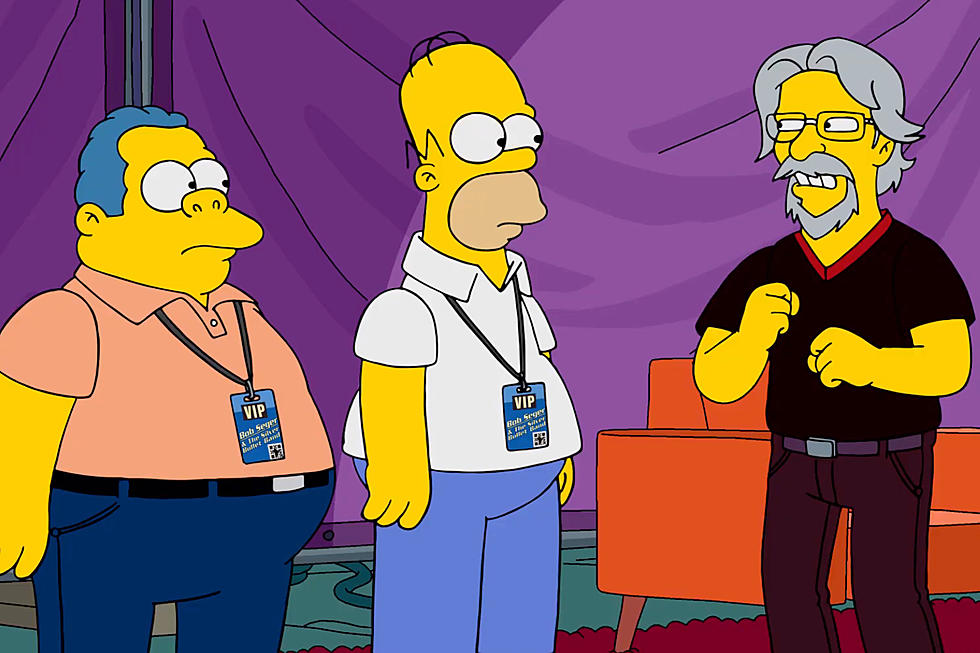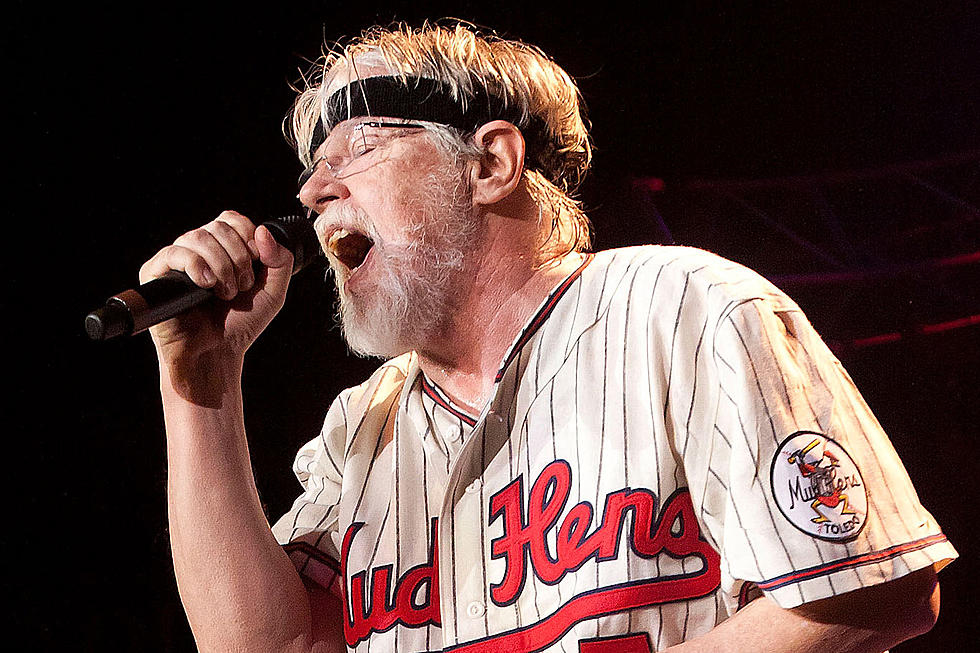
40 Years Ago: Bob Seger Takes a Victory Lap With ‘Nine Tonight’
If 1976's Live Bullet began the ascendance to superstardom for Bob Seger & the Silver Bullet Band, 1981's Nine Tonight commemorated the group's arrival at the summit.
But there are tremendous differences between the two records. Live Bullet was grit and sweat; Seger and company could be headlining Cobo Arena at home in Detroit one night, opening for Bachman-Turner Overdrive the next and playing a club in between. And the album reflected that hungry urgency.
Nine Tonight, meanwhile, came on the heels of three multiplatinum albums - 1976's Night Moves, 1978's Stranger in Town and 1980's Grammy Award-winning Against the Wind - and seven Top 20 hits. It featured a different drummer (David Teegarden) and keyboardist (Craig Frost, following a tenure with Grand Funk Railroad), as well as a trio of female backing vocalists.
The expanded version of the band was also selling out arenas around the world thanks to its first (and only) trek through Europe. "That was when the frenzy started to kick in," recalls Silver Bullet backing vocalist Shaun Murphy, who worked with Seger from the early '70s through to his farewell tour in 2019, though she wasn't a regular on the road until 1978. "I think we had crossed this precipice. The band had really evolved since Live Bullet, and you'd look in the audience and people were singing all the words. That hadn't happened to Bob yet. It just gave you chills."
"Here's the difference," adds Drew Abbott, the Silver Bullet Band's lead guitarist through 1983 and also part of Live Bullet. "On the first live album people didn't really know all the songs. They were really reacting to the band and our performance. By [Nine Tonight] they were coming to hear the songs. They knew 'em. They would react immediately to the opening bars, so we didn't have to push as hard to get [the audience] going."
Nine Tonight was recorded during June 1980 at multi-night stands at Cobo and also at the Boston Gardens with the Record Plant mobile studio, engineered by David Hewitt with Seger and his manager Ed "Punch" Andrews producing. August dates at the Pine Knob Music Theatre outside Detroit were also recorded but not used on the 16-song set. "Detroit was home, of course, and always good, but Boston was always fun to play, too," remembers Frost, who stayed with the band through 2019. "You had an adrenalin rush when you played in Boston, just like it was in Detroit."
Jay Barth, Seger's front-of-house PA mixer at the time, says that those old-school arenas, with their steep grades, put the audiences in closer proximity to the band. "They seemed much closer, more on top of the band, and Bob and the band really responded to that," he says now. Frost recalls "there was a lot of energy back then. The band was really good. Bob was singing really strong. Those were fun shows to play."
Seger and Andrews, meanwhile, made sure Nine Tonight complemented Live Bullet, limiting the repeats to just one song: a finale cover of Chuck Berry's "Let It Rock" that stretched to 10 and a half minutes on the original album issue but was shortened to six minutes on CD to accommodate an extra track, "Brave Strangers." That left out the "Travelin' Man"/"Beautiful Loser" medley, "Turn the Page," "Ramblin' Gamblin' Man" and "Katmandu," all of which appeared on Live Bullet.
For Abbott, that put a bit more emphasis on the quieter "big beat ballads" such as "Mainstreeet," "Against the Wind" "Fire Lake" and "Night Moves." "'We've Got Tonight,' that wasn't my personal favorite but it's a good song, and people would just go wild when you hit those first two chords," remembers Abbott. "People would go nuts, and I'm going, 'Boy, Bob knows what he's doing.' So the ballads were really going over, but we were still doing rock 'n' roll."
Listen to Bob Seger & the Silver Bullet Band's 'Tryin' to Live My Life Without You'
The group threw a couple surprises into the set as well. Nine Tonight's title track was a song Seger had contributed to that year's Urban Cowboy soundtrack. "Tryin' to Live My Life Without You," meanwhile, was an early '70s Memphis soul song written by Eugene Williams and popularized by Otis Clay; Seger's version (backed with the non-album "Brave Strangers") hit No. 5 on the Billboard 100. Abbott says it made its way into the set after longtime Seger pal Glenn Frey acknowledged that it was source material for the title track of Eagles' recent album The Long Run.
"There was some friendly competition between Bob and Glenn, so Bob did the original, kind of going, 'Hey, Glenn, this is how you do the real thing' - at least that's my interpretation of it," the guitarist says. "Bob was smoking cigarettes back then, so he had the perfect kind of voice to do it."
The live rendition of "Old Time Rock & Roll," meanwhile, replaced the song's iconic piano introduction with a guitar groove led by Abbott that chugged its way into the first verse. "I don't think it was any monumental thing; we just started doing it that way," Abbott says. "You could extend the song a little bit and get the audience excited, and then surprise 'em when the song kicked in."
Released Sept. 4, 1981, Nine Tonight continued Seger's winning streak, peaking at No. 3 on the Billboard 200 and going quadruple platinum. A follow-up single to "Tryin' to Live My Life Without You," "Feel Like a Number," made it to No. 48. The album marked the end of Abbott and Teegarden's time with the band, and Nine Tonight remains the last official Seger live album to date, though shows on subsequent tours were recorded, including a few radio broadcasts, and even filmed.
"Later on with Seger, we started adding a lot more players, a horn section and stuff like that," Frost says. "Everybody's been great, but back then there was only a few of us onstage, and you had to really do your part. I'd play a couple of keyboards at the same time. Alto [Reed] had to play two saxes sometimes. I liked that. It was a good band. Seger's vocals were very strong. That's what you hear."
Bob Seger Albums Ranked
More From 96.7 The River










